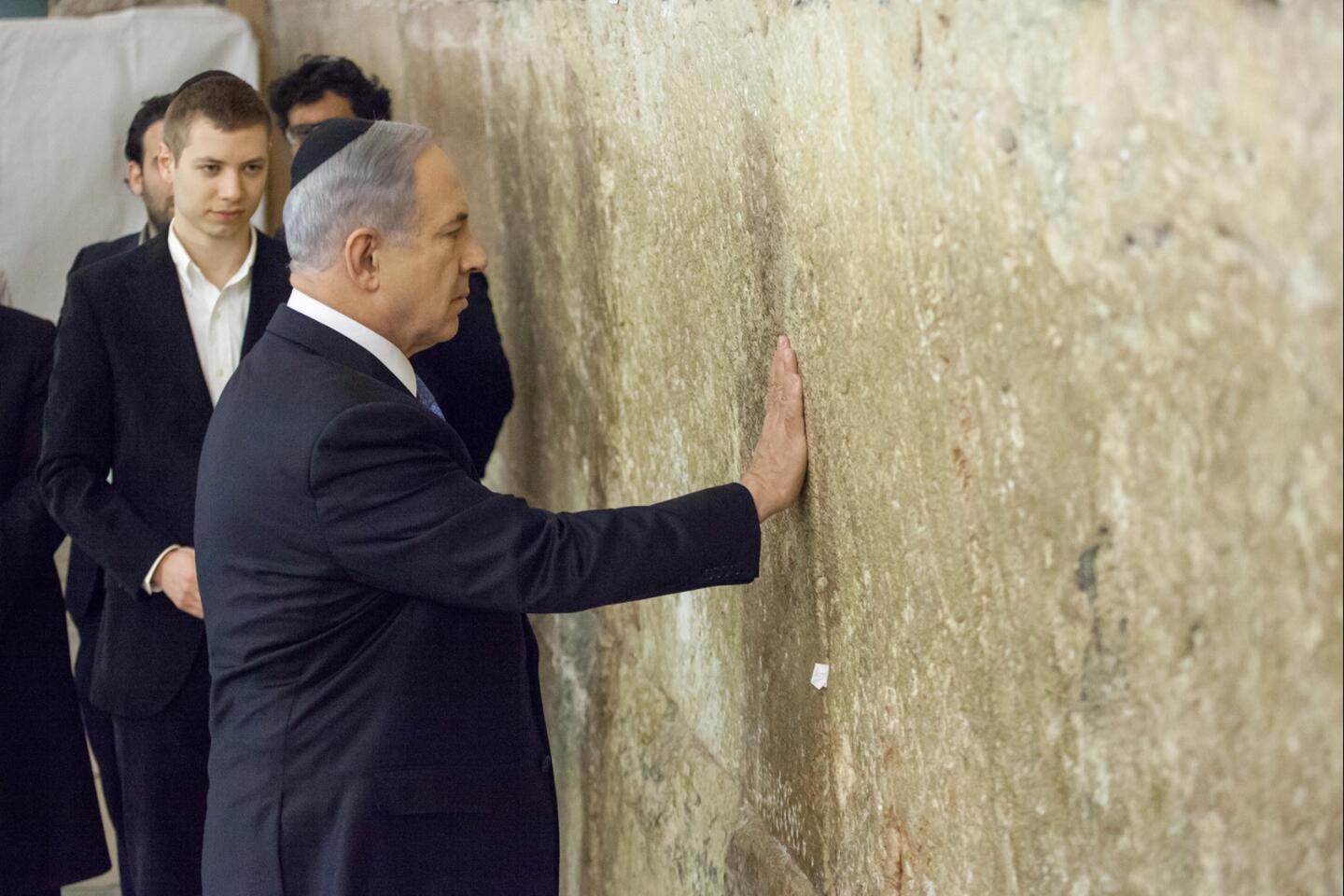Editorial: Netanyahu’s cynical campaign
- Share via
It is beginning to seem likely that Israeli Prime Minister Benjamin Netanyahu will be able to hold on to his office after Tuesday’s bitterly contested national elections. Netanyahu’s Likud bloc was solidly ahead of the coalition led by Isaac Herzog of the center-left Zionist Union.
Netanyahu fought to hold on to power in the worst way. In a desperate attempt to win the support of hard-line voters, he repudiated his tepid-from-the-start support for a two-state solution in which Israel would coexist peacefully with an independent Palestinian state.
And he ended his campaign by warning darkly that Arab citizens of Israel were “moving en masse to the polling places” in a way that “distorts the true will of the Israeli people” — implying cynically that a result shaped significantly by Arab participation would be illegitimate.
It’s not the place of a newspaper in Los Angeles to tell Israelis how to vote. But now that the election is over, we don’t mind saying that we were hoping for the end of the counterproductive Netanyahu era in Israeli politics.
Netanyahu has supported the expansion of Jewish settlements in East Jerusalem and on the West Bank of the Jordan River that create “facts on the ground” that complicate the creation of a contiguous Palestinian state. Although he has paid lip service to a two-state solution, indicating in 2009 that if the Palestinians recognized Israel as a Jewish state he could accept “a demilitarized Palestinian state side by side with the Jewish state,” the mask slipped in the closing days of this campaign. On Monday, Netanyahu vowed that he wouldn’t allow a Palestinian state to be established if he were returned to office, warning that “anyone who is going to establish a Palestinian state today and evacuate lands is giving attack grounds to the radical Islam against the state of Israel.”
Reaching agreement on a two-state solution would be difficult even if Netanyahu were replaced by a prime minister more amenable to the notion. Despite efforts at reconciliation, Palestinians are divided between the administration of Palestinian Authority President Mahmoud Abbas, with whom Israel has conducted negotiations, and the rejectionist Hamas movement that rules the Gaza Strip. Israeli leaders of all parties are understandably unwilling to negotiate an agreement with a movement like Hamas that is bent on their country’s destruction.
Even negotiations with the Palestinian Authority would be difficult because Abbas lacks legitimacy in the eyes of his people and because, to this day, the core demands of Israelis and Palestinians, on issues such as the future of Jerusalem and what to do about refugees living outside the country, are difficult to reconcile.
But it’s one thing to acknowledge the difficulty of negotiating a two-state solution that would allow for a sovereign Palestinian state alongside a safe and secure Israel. It is quite another to categorically rule out the idea. The latter approach is ominous not only for regional peace but also for Israel’s self-interest.
Follow the Opinion section on Twitter @latimesopinion and Facebook
More to Read
A cure for the common opinion
Get thought-provoking perspectives with our weekly newsletter.
You may occasionally receive promotional content from the Los Angeles Times.

















